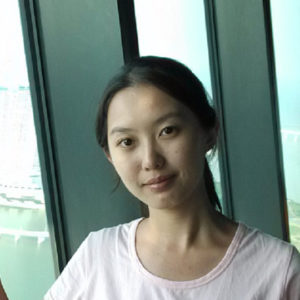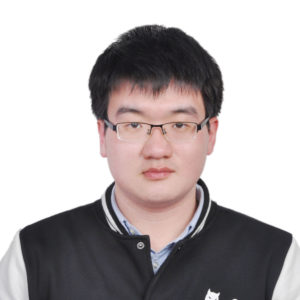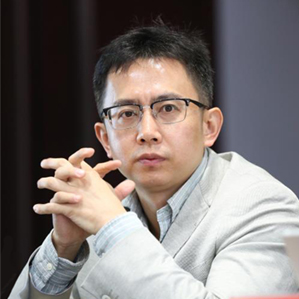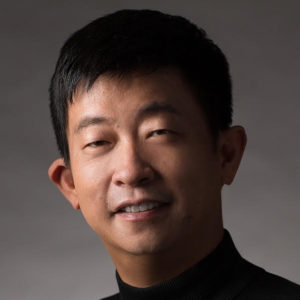T3: MetaEverything: Intelligent Meta-Material Aided Sensing and Communications
Organizer: Boya Di, Imperial College London, UK
Organizer: Hongliang Zhang, Princeton University, USA
Organizer: Lingyang Song, Peking University, China
Organizer: Zhu Han, University of Houston, USA
Abstract: The future wireless networks are exhibiting a trend towards the intelligent communication and sensing system to support a variety of applications requiring high data rates, low hardware cost, and fine-resolution sensing. Fortunately, with the recent development of new materials, reconfigurable intelligent meta-material provides an efficient approach to reshape and control the electromagnetic characteristics of the environment, which can be utilized to enhance the performance of communication and sensing. In this tutorial, we will first provide a general introduction of the intelligent meta-material along with the state-of-the-art research in different areas. We then introduce the unique features of intelligent meta-material which enlighten its broad applications to communication and sensing, in a comprehensive way. Related design, analysis, optimization, and signal processing techniques will be presented. Typical meta-material based applications for both cellular communications and radio frequency sensing as well as localization will be explored. The implementation issues along with our developed prototypes and experiments will also be discussed. Formalized analysis of several up-to-date challenges and technical details on system design will be provided for different applications.

Bio: Boya Di (S’17-M’19) received the B.S. degree from Peking University in 2014, and the Ph.D. degree from Peking University in 2019. Currently she is post-doctoral research associate in Imperial College London, London, UK. Her main research interests include reconfigurable intelligent materials, multi-agent systems, wireless resource allocation and management, edge computing, and optimization theory. She has published over 10 journal papers on the topic of reconfigurable intelligent material aided communications and sensing, including 2 first-author ones. One of her journal papers is currently listed as highly cited papers in Web of Science. She is currently an Editor for IEEE Transactions on Vehicular Technology. She has also served as a reviewer for multiple IEEE journals including IEEE JSAC, TWC, TCOM, etc., and a TPC member for IEEE GLOBECOM and ICC several times.

Bio: Hongliang Zhang (S’15-M’19) received the B.S. and Ph.D. degrees at the School of Electrical Engineering and Computer Science at Peking University, in 2014 and 2019, respectively. He was a Postdoctoral Fellow in the Electrical and Computer Engineering Department at the University of Houston, Texas from Jul. 2019 to Jul. 2020. Currently, he is a Postdoctoral Associate in the Department of Electrical Engineering at Princeton University, New Jersey. His current research interest includes cooperative communications, Internet-of-Things networks, hypergraph theory, and optimization theory. He received the best doctoral thesis award from Chinese Institute of Electronics in 2019. He has served as a TPC Member for many IEEE conferences, such as Globecom, ICC, and WCNC. He is currently an Editor for IET Communications. He also serves as a Guest Editor for IEEE IoT-J special issue on Internet of UAVs over Cellular Networks.

Bio: Lingyang Song (S’03-M’06-SM’12-F’19) received his PhD from the University of York, UK, in 2007, where he received the K. M. Stott Prize for excellent research. He worked as a research fellow at the University of Oslo, Norway until rejoining Philips Research UK in March 2008. In May 2009, he joined the School of Electronics Engineering and Computer Science, Peking University, and is now a Boya Distinguished Professor. His main research interests include wireless communications, mobile computing, and machine learning. Dr. Song is the co-author of many awards, including IEEE Leonard G. Abraham Prize in 2016, IEEE ICC 2014, IEEE ICC 2015, IEEE Globecom 2014, and the best demo award in the ACM Mobihoc 2015. He received National Science Fund for Distinguished Young Scholars in 2017, First Prize in Nature Science Award of Ministry of Education of China in 2017. Dr. Song has served as a IEEE ComSoc Distinguished Lecturer (2015-2018), an Area Editor of IEEE Transactions on Vehicular Technology (2019-), Co-chair of IEEE Communications Society Asia Pacific Board Technical Affairs Committee (2020-). He is a Clarivate Analytics Highly Cited Researcher.

Bio: Zhu Han (S’01–M’04-SM’09-F’14) received the B.S. degree in electronic engineering from Tsinghua University, in 1997, and the M.S. and Ph.D. degrees in electrical engineering from the University of Maryland, College Park, in 1999 and 2003, respectively. From 2000 to 2002, he was an R&D Engineer of JDSU, Germantown, Maryland. From 2003 to 2006, he was a Research Associate at the University of Maryland. From 2006 to 2008, he was an assistant professor in Boise State University, Idaho. Currently, he is a Professor in Electrical and Computer Engineering Department as well as Computer Science Department at the University of Houston, Texas. His research interests include wireless resource allocation and management, wireless communications and networking, game theory, wireless multimedia, security, and smart grid communication. Dr. Han received an NSF Career Award in 2010, the Fred W. Ellersick Prize of the IEEE Communication Society in 2011, the EURASIP Best Paper Award for the Journal on Advances in Signal Processing in 2015, the IEEE Kiyo Tomiyasu Award in 2021, and several best paper awards in IEEE conferences. Dr. Han is top 1% highly cited researcher according to Web of Science since 2017, and AAAS fellow since 2019.
